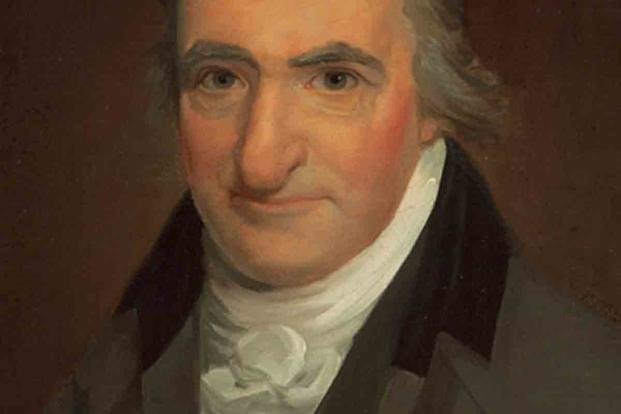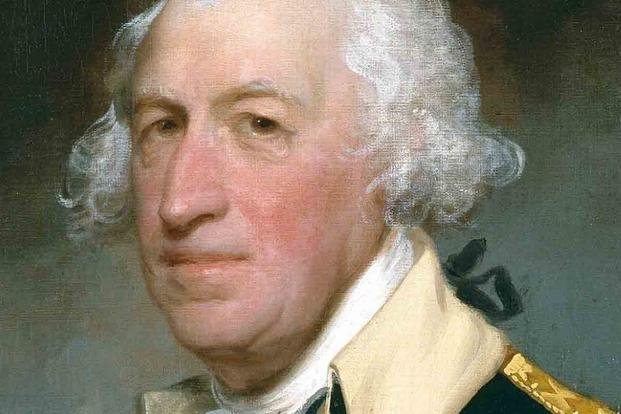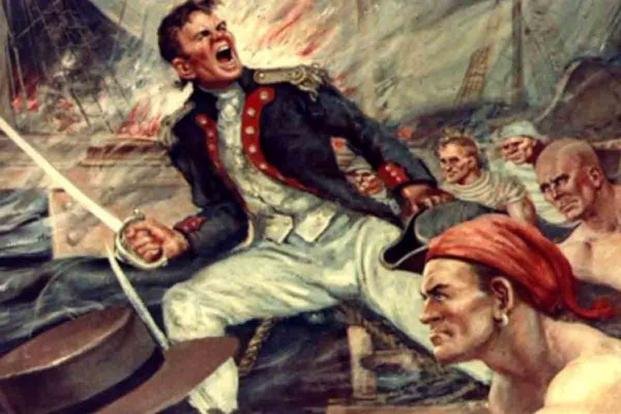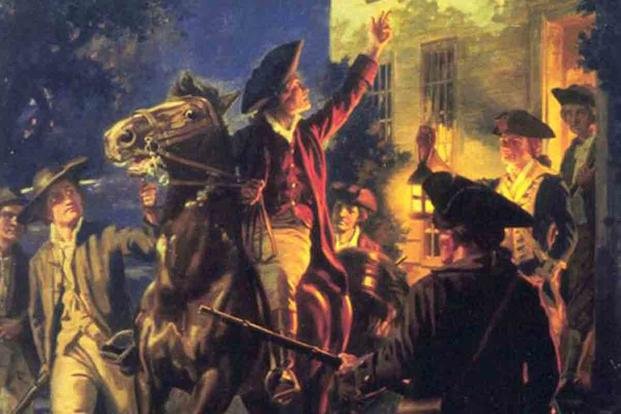Revolutionary War history is filled with heroes and villains, and which is which depends on which side of the Atlantic you were sitting. Here in the United States, our history textbooks mention every one of the names on this list, a memory of their valuable contributions to the birth of our nation.
Those history books don’t really get the chance to tell the whole story.
Nobody’s perfect, and this was true even among the founding fathers. Benjamin Franklin wasn’t allowed to touch the Declaration of Independence, because people thought he’d write jokes in it. Thomas Jefferson had a slave as a mistress. The entire American government didn’t know whether those of Asian descent should be counted as “free whites.”
It doesn’t negate their accomplishments or contributions to the creation of the world’s longest-standing democracy. The four people who follow have equally famous names, but ended their careers in a less-than-celebrated fashion.
1. Thomas Paine

Paine is known today as the writer, philosopher and general rabble-rouser who published “Common Sense,” one of the most influential works that led to the Revolutionary War. Along with “The American Crisis,” he inspired the Declaration of Independence, but Paine continued being a thorn in everyone’s side long after those works were published.
He moved to France, where he continued to spark outrage during the French Revolution. He was eventually jailed at the behest of his powerful enemies. When he was released, he attacked his former allies, who he believed betrayed him. He then denounced George Washington as incompetent in 1796, even though the general had won independence in 1783.
He died six years after attacking Christianity in another pamphlet, which led to only six people attending his funeral.
2. Horatio Gates

Gen. Horatio Gates is one of the most controversial figures of the revolution. He claimed responsibility for the American victory at Saratoga, which would cause the French to join the war against England and lead to Benedict Arnold’s treason. The win also led many to believe that Gates should take over Washington’s position as commander in chief.
Gates did little to quell those feelings. In fact, he is presumed to have taken part in two conspiracies to unseat the American command structure. The first, the Conway Cabal, saw letters criticizing Washington made public, suggesting a replacement. The second was the Newburgh Conspiracy, which was an attempted mutiny against the Congress when it was unable to pay for almost anything, including the troops fighting the war.
Both failed, and Gates lost his command after his defeat at the Battle of Camden in 1780, leaving his reputation in tatters.
3. John Paul Jones

After the revolution ended in 1783, the “Father of the U.S. Navy” needed a job, so he went to work for Catherine the Great in Russia, where he was made rear admiral. He was successful against the Turkish fleet in the Black Sea, but the Russian nobility was less than thrilled with him.
They accused Jones of having indecent relations with the 10-year-old daughter of a noblewoman. Jones denied the accusation, saying the event in question was a deliberate setup, planned by the girl’s mother. He nearly killed himself over it, but was exonerated in the end.
Despite the truth coming to light, he became a pariah in Russia. In 1789, Catherine discharged him and forced him to leave the country. He never held another command and was dead by 1792.
4. Paul Revere

The man made famous for his midnight ride to rouse colonial militias before the Battles of Lexington and Concord was actually one of the organizers of this early warning system. When the war started, he became a militia officer and served on a few notable campaigns. Unfortunately, one of those was the worst loss the U.S. Navy would suffer until Pearl Harbor.
Lt. Col. Paul Revere was an artillery officer in command of 100 men during the 1779 Penobscot Expedition, a colonial effort to take parts of Massachusetts, now known as Maine, from the British. It was a fiasco with all 44 ships sunk, more than 474 wounded or killed and the survivors forced to make an overland trip back to Boston.
Revere was accused of disobedience and cowardice in the days that followed and was dismissed from the militia. He wasn’t exonerated until 1782. Luckily, he was still a skilled metalsmith and became a successful manufacturer.
–military.com



